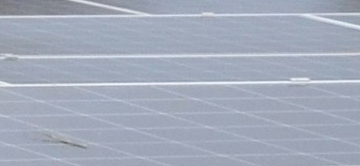Pressed by the so-called ‘gilets jaunes’ protest, the French government steps back on its plans to raise the carbon tax on fuel in 2019. The announcement, which comes as the COP24 takes place in Poland, undermines France’s leadership in the international arena on climate after the Paris agreement in 2015. Does this mean the carbon tax is harder to swallow in France than elsewhere?
France’s CSPE tax
It turns out that French tax-payers already pay an energy transition tax: the CSPE (contribution to the public service of electricity) which is clearly marked on their power bill, regardless of the supplier. Around two-thirds of the CSPE finances renewables. That’s not small potatoes: about €5 billion in 2018 - a figure that rises every year.[1] All energy users, rich or poor, subsidise the photovoltaic panels on the roofs of private home owners, on warehouses, and in fields. A study[2] from the US has shown that this taxation is regressive: it is paid by everyone, including the poorest groups, for the benefit of (generally wealthier) owners of such installations. Despite that no one has taken to the streets to denounce the ‘scandalous’ CSPE tax in France since it was created in 2004.
Purists will object to the use of the term tax in the previous paragraph. The CSPE, as its name suggests, is a “contribution”.[3] In the French system, this means it is destined to fund a specific service - the production of decarbonised energy - the same way that fees on the water bill are used to fund activities run by the French water agencies.
The large tax pool
Taxes in France cannot be assigned to a specific expense. Instead, tax revenue is pooled together to provide the government with greater spending flexibility. Economists generally agree[4] that the public authorities (which we assume are democratically elected and hence generally aligned with the desires of their electors), are in a better position to identify the best opportunities for spending. It would be inefficient for the government to limit itself to a particular type of expense. Nonetheless, assigning tax revenue in advance does have some advantages, especially in political terms.
For the transition of the electric power mix, the French government decided to invest in wind turbines and solar energy first, before raising money to pay for it. As a consequence, the amount of the CSPE is adjusted to the subsidies to be paid, rather than the other way around. In order to back the integration of renewables, citizens had to agree with the way they are financed. For transport fuel, however, the carbon tax and its future increases were announced before any supportive measures towards decarbonised transport. The subsidies on vehicles (scrapping premium, electric or hybrid vehicle premium) are peanuts compared to the revenue collected from fuel taxes. But there have been no plans to assign these additional resources to tackle fuel poverty or to develop public transport in rural areas, for instance. Eliminate diesel vehicles? Why not? Eliminate them by making diesel unaffordable? Once again, why not? But how do vehicle owners get around when their fuel tank is empty?
Carbon tax on the other side of the Atlantic
Promoting the use of resources before they have been collected is a strategy used by other governments to make taxes easier to swallow. The government of Alberta, Canada, launched in 2017 an earmarked carbon tax of CAD 30 per tonne. One-third of the revenue is redistributed as a benefit for the poorest households to compensate for the added expense of the tax. A couple with two children on an annual income of CAD 80,000 are eligible for a rebate of CAD 540 in 2108. A quarter of the revenue is financing investment in infrastructure, public transport, schools and hospitals. 10% is assigned to energy efficiency. And a further 10% finances tax cuts for SMEs.[5]
In the US, the State of Washington held a referendum on an initiative to introduce a carbon fee last November. The people voted on I-1631 which not only plans to set the price of CO2 at $15, but also draws up a specific list of expenses: investment in public transport, in energy efficiency and renewables, forest protection, and compensation for communities affected by coal mine closures.[6] The initiative was ultimately rejected,[7] but it nonetheless raised a democratic debate on the issue of a comprehensive ecotax.
*
* *
Taxation is a political instrument with two sides to it: income and expenses. The focus on income - when the people have lost confidence in the public authorities - has had disastrous results in France. It is hard to applaud a drop in fuel consumption when it is generated by higher taxes on fuel. Consumers know how much they pay for fuel, but the gains are harder to see. The transition to decarbonised modes of transport is expensive. It requires huge investment. It has a negative impact on the poorest households. The debate on eco-taxes in France needs to address all these issues.
[1] The CSPE may be reduced in 2019 because the government has found no other way of cutting the price of electricity - a move intended to appease the social malaise: https://www.lemonde.fr/economie/article/2018/12/07/le-gouvernement-envisage-de-baisser-les-taxes-sur-l-electricite_5393773_3234.html
[2] S. Borenstein and D. Lucas "The Distributional Effects of U.S. Clean Energy Tax Credits", NBER Tax Policy and the Economy, 2016, 30(1), 191-234, http://ei.haas.berkeley.edu/research/papers/WP262.pdf
[3] According to the Conseil d'Etat, “This contribution is a tax that is neither a direct tax, nor a tax on turnover or an equivalent tax, nor an indirect contribution or another tax for which litigation is entrusted to the courts by Article L. 199 of the Tax Procedures Guide. Therefore, litigation regarding this tax is included among the general litigation of acts and operations of the public authority and as such falls within the competence of the administrative courts.” http://www.conseil-etat.fr/fr/arianeweb/CE/analyse/2015-07-22/388853
[4] See the article by Christian Gollier published in Le Monde on 21 Nov 2018: “Gilets jaunes: La transition écologique va nécessiter un courage politique considérable” (Ecological transition will require considerable political courage)
[5] Source: Alberta, Fiscal Plan 2017, Climate Leadership Plan, http://ccacoalition.org/sites/default/files/resources/2017_alberta-fiscal-plan.pdf
For more information on how the carbon tax is used in Canada, see https://ecofiscal.ca/wp-content/uploads/2016/04/Commission-Ecofiscalite-Choix-judicieux-tarification-carbone-recyclage-recettes-Sommaire-avril-2016.pdf
And more generally: https://ourworldindata.org/carbon-pricing-popular





